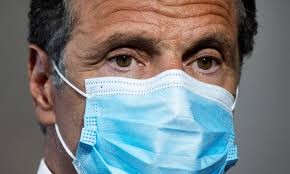
When COVID-19 came to New York, the Legislature moved fast to grant widespread immunity to hospitals and nursing homes for virtually any acts of negligence that occurred, including, obviously, medical malpractice.
Realizing that such immunity was far too broad, the Legislature then pared it back. See, from August 4th, Cuomo Signs Bill Limiting Medical Immunity.
The key element of what will entitle medical practitioners to immunity now is whether they were “impacted” by the pandemic. The relevant time period shift in the law is March 7 to August 3rd. And yes, “impacted” is vague.
When this paring back of immunity occurred, I wrote of what the future would bring for any nursing home or medical malpractice suit brought within the key time period:
Coming soon to lawsuits and motion practice: Arguments that any medical or nursing malpractice case for any reason that occurred between March 7, 2020 and August 3, 2020 should be immune, as defense lawyers scramble to argue a COVID “impacted” hook.
But now Gov. Andrew Cuomo has monkey-wrenched the arguments of malpractice defense lawyers throughout the state.
How did he manage to do that? In an interview with CNN, he said that New York’s hospitals “were never overwhelmed” at the peak of the COVID-19 pandemic.
Yowza! So hospital lawyers, defending malpractice cases, will obviously all want to claim their hospital or doctor was “impacted.” But the Governor just said the the hospitals “were never overwhelmed.”
Now you can try to parse the differences between those two phrases, but the ultimate answer will no doubt result in intense factual disputes.
This may well mean that attempts for fast victories on motions to dismiss — asserting that based on the pleadings alone there is no cause of action — can be easily shot down.
But will they be dismissed based on lack of evidence, as happens with summary judgment motions? To grant summary judgment there must be an absence of a factual dispute. Because factual determinations are for juries, not judges.
Any thoughts that such dismissals will come easily should now be out aside. Plaintiff’s bringing actions that fall within the applicable time period will be wise to add claims that treatment was not impacted by the pandemic.
And defense lawyers would be wise not to think that some conclusory affidavit from a hospital administrator will easily win them the day. Because I don’t believe they will.
We will be going someplace in discovery that we don’t usually go: Lawyers will now be looking at who else is in the hospital, what kinds of patients they were, how many beds were filled, etc., all in order to prove that care was (not) “impacted” by the pandemic.
An easy example: Patient goes to a New York City hospital for COVID in late June. Patient needs medication for condition. Wrong dosage is given by young intern who just started out on July 1 — instead of 0.5 mg it is 10.0 mg. Was treatment “impacted” by the pandemic?
Hospital argues that patient was only in hospital due to COVID.
Patient’s counsel argues that hospital was not understaffed and rushing around like chickens without heads at the time. There were, in fact, empty beds and staff available as the pandemic in NYC was slowing down.
The Governor just handed a big fat factual dispute to litigants throughout the state who, perhaps, thought the matter would be easily resolved in favor of medical practitioners.
Discovery may well be going where discovery has not gone before.